In and out of this heatwave, the sun is (in Lena Dunham’s words in this month’s British Vogue) totally bleaching my thoughts. It’s way too hot, and I’m way too knackered after Glastonbury, to think too hard about much of anything if I’m honest.
Which is apt…given what I want to talk about with you today. A pattern I’m noticing this summer that I think backs up a lot of what we’ve been talking about here lately:
Brands urging us to do…and achieve…nothing.
It’s happening all over the place.
Hotel chains usually use their brand-building budgets to talk to us about the sights we’ll see, the food we’ll eat, the people we’ll encounter. Sports brands tend to associate themselves with pushing boundaries, crushing goals, and the holy trinity: commitment, hope, belief. And fashion businesses, especially at the higher altitudes, tend to deal in - at least on some level - status, kudos, credibility, envy.
But this summer the opposite seems to be happening.
Best Western, the mainstream mid-market global hotel chain whose whole business model, you would think, depends on people going places and doing things (especially during such a challenging time in the mid-levels of the travel industry) is celebrating doing and achieving nothing. The v/o on their big peak-season summer TV campaign (a project they launched last year and reprised for 2025) is: “Today we accomplished nothing. And it was kind of everything.” Give their brand strategist a raise. A timely, well-expressed cultural observation to build around, particularly for a mass-market global brand.
If we look at the SS25 runway collections we see something remarkably consistent:
Mrs Prada said of the Miu Miu show: “We really wanted to create an elegance with nothing, through the everyday, through…simple pieces.” The collection was unusually stripped-back, high summer elegance as an absence of fuss. The feeling (and the styling) was more about calm and stillness than spectacle and showiness: visible bra straps, casually draped coats. The atmosphere was, in her own words: “unfiltered”.
At Gucci Sabato De Sarno’s keywords in the SS25 show-notes were casual grandeur. The runway’s gradient sunset tones were like a lazy Italian summer evening, and the show closed with a nostalgic singalong. At a conceptual level the whole thing seemed to be about everyone…Gucci, its customer…just not trying quite so hard. It was de Sarno’s invitation, again in his own words, to “stop”. Like Dazed said in its coverage of the show: “Stop reading this. Go and watch a sunset.”
All of which makes sense from de Sarno - he’s the man who told The NY Times, on taking the helm at Gucci: “I’m more real. I don’t want to build another world. I don’t like sets.”
Down on the (high end) high street, similar scenes. Canadian ethical fashion business Kotn are investing heavily in summer messaging about time well wasted. Called stories of nothingness from everywhere, their campaign conjures the almost enforced laziness of the blindingly-hot, wide-open Egyptian summers of the founder’s youth.
A Spanish brand I love, Nude Project, is also running on similar rails this summer. Their high season campaign (inspired they say by the power blackout in May that affected 50 million people for 12 hours) is called the art of boredom. It’s about the pleasure of simply doing nothing with your friends, finding your own fun, playing cards, playing keepy-uppy, messing about. Childhood joys we somehow all got too busy and grown-up for.
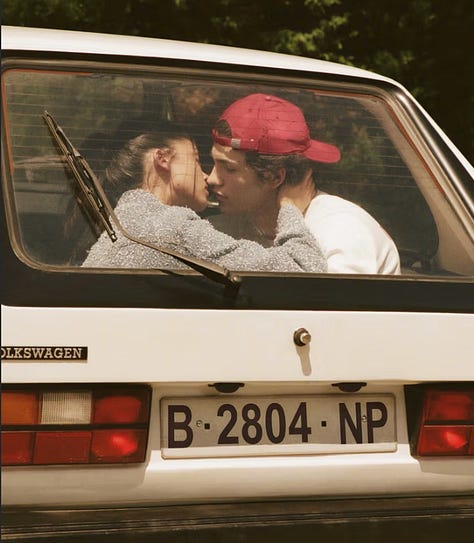
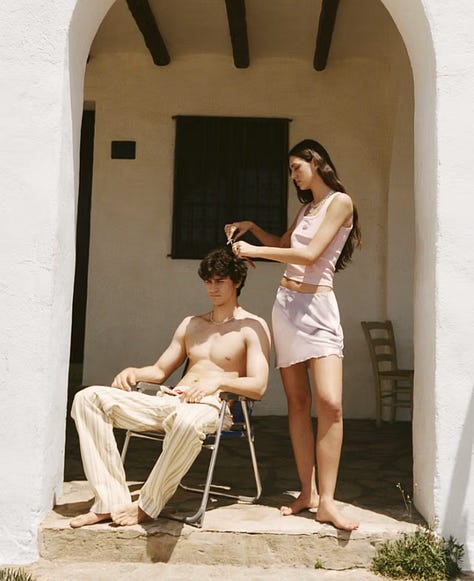
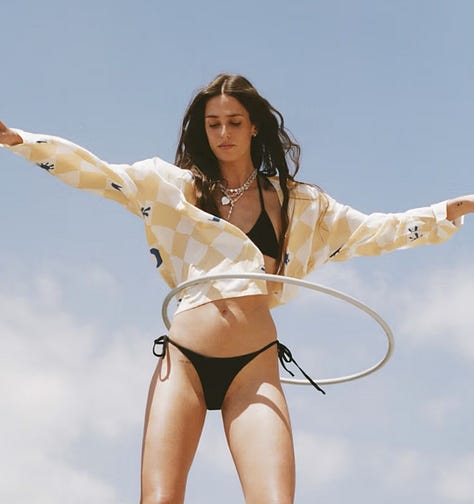
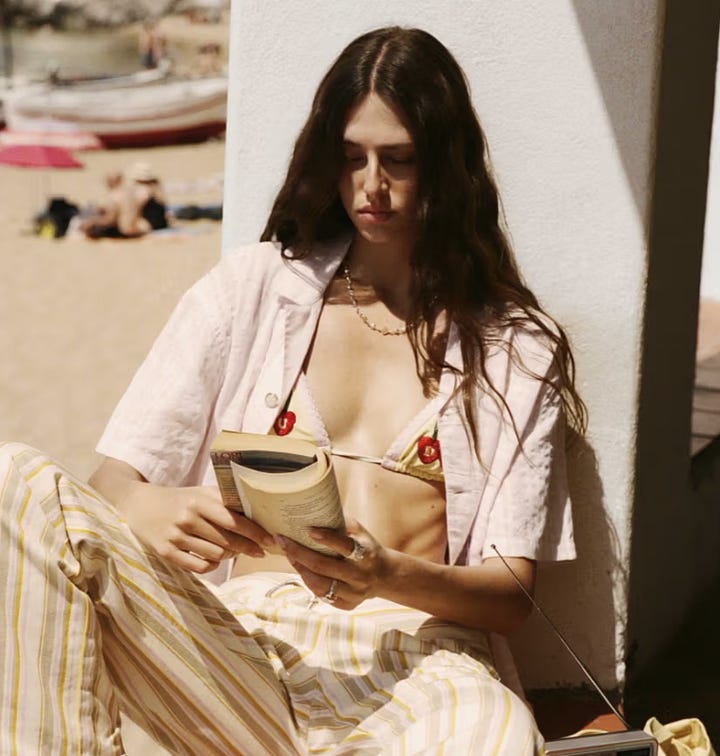
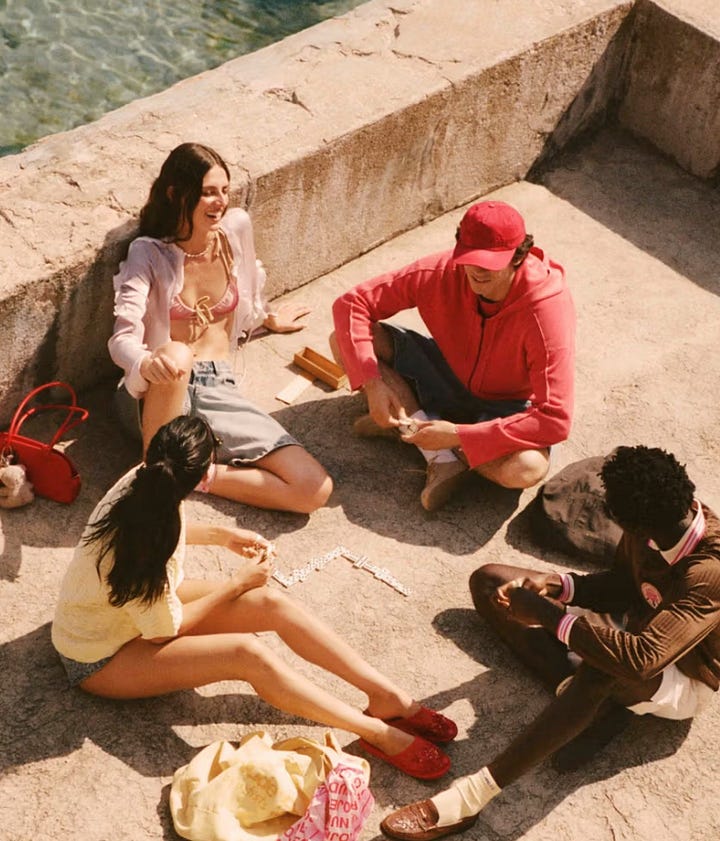
In sport, similar scenes. All spring On Running has been backing a campaign called SOFT WINS that’s about a softer, more balanced way of thinking about progress and commitment in running. “As a performance-driven brand, we wanted to challenge the idea that success in running is defined by intensity alone,” said Alex Griffin, On’s Chief Marketing Officer, in a press release.
Or David Lloyd, who describe themselves as Europe’s leading premium gym chain, has spent 2025 backing the Dutch art of 'doing nothing' in both their marketing and experience design. Niksen is an age-old concept that’s pretty much the opposite of the 21st century’s always-on culture. David Lloyd have invested in new class formats and extensive marketing messaging urging members to rediscover how to switch off and simply ‘be’. They made the decision after a research project told them that two thirds of the 2000 British adults they surveyed say they feel often mentally exhausted, 60% can’t remember the last time they properly switched off, and 22% say they don’t know how.
Now our rest has become work, our summers are not our downtime.
Our lives are a tyranny of productivity, self-optimisation and keeping up appearances, where even (maybe especially) our downtime has to be carefully staged.
We’ve talked about this before - having reached perhaps what sociologist Byung-Chul Han calls "burnout society", where the pressure to constantly self-improve and self-optimise has become a form of violence against the self.
(Last week we talked about the brewing backlash/correction I think we’re seeing:)
But when everyone's busy performing their best life, in a culture that strongly equates human worth with productivity, being seen to be unproductive is deeply countercultural. And brands spending their marketing resources encouraging us to do nothing is, too. Which is why I think this pattern is so worth taking note of.
Summer is traditionally the time we slow down, step back, unplug a bit. School's out, a lot of offices empty out early on Fridays, some French ones still shut up shop entirely. The world collectively agrees to slow down.
But actually, no. Not really. Because in summer we are socially conditioned - and very much expected - to make every moment count, experience all of the things, max out those holiday allowance dates, curate the perfect wardrobe, look our best, make memories, find the best spots and get the best shots. I mean, what are you going to do, see, wear, read during your Euro Summer, your airport trip, your festivals? How are you doing your hair, tying your pareo, and what is your 10k+ city walking shoe of choice? Even our SPFs have become a status symbol…or a wisdom signal (Korean, obviously. But mineral or chemical? Tinted or no?).
Summer’s not a break. It’s the biggest hustle of all. We know we’re supposed to be resting - rest, we have been told, being more critical than ever in this era of great intensity - but we can’t switch off. And we cannot stop looking at what everyone else is doing with their wild and precious summer. We’re siren-called to the participate in the curated, hashtagged, stressful kind of downtime that's probably just another form of consumption and control.
So of course gloriously unproductive nothingness stands out. And is more thought-provoking than it probably should be.
Are you seeing this too in your world/work?
Is this the real reason the flip-flop is the shoe of the summer?
Until next time/thanks for reading.
Beth




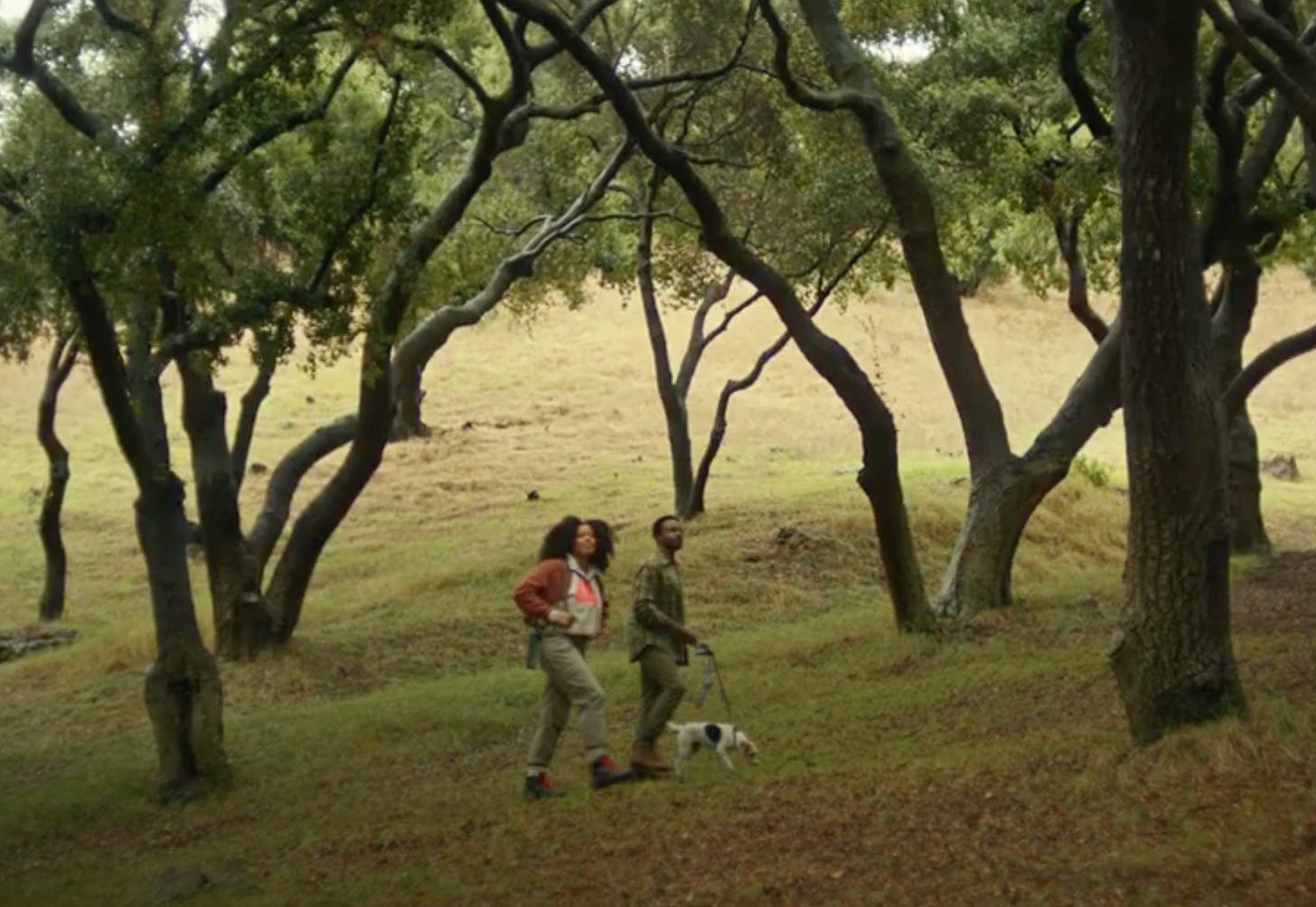
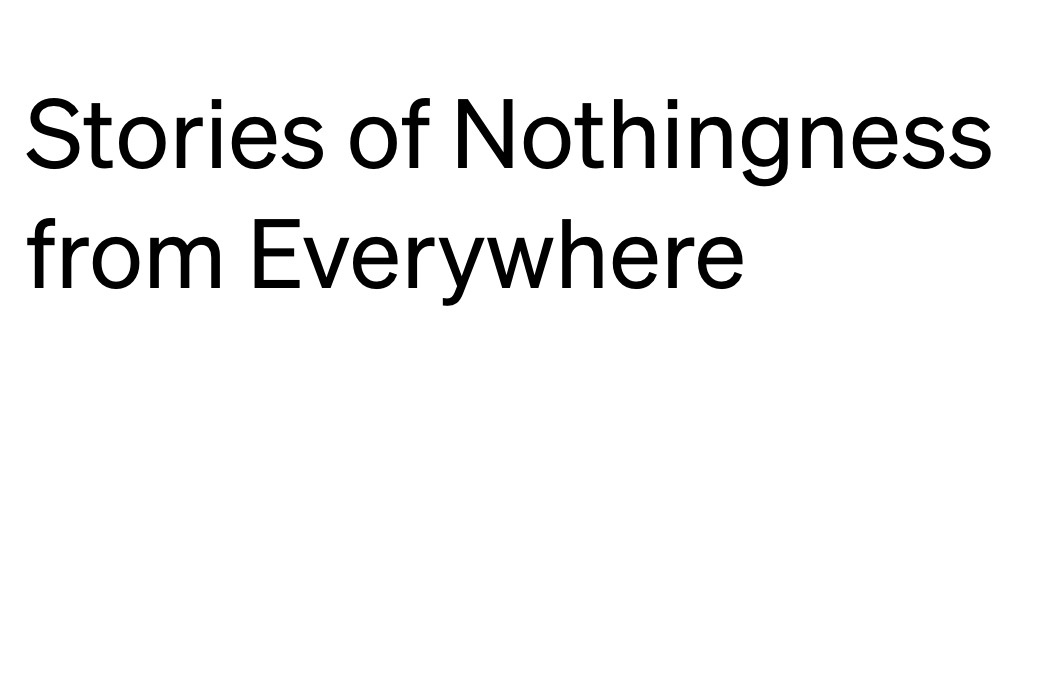
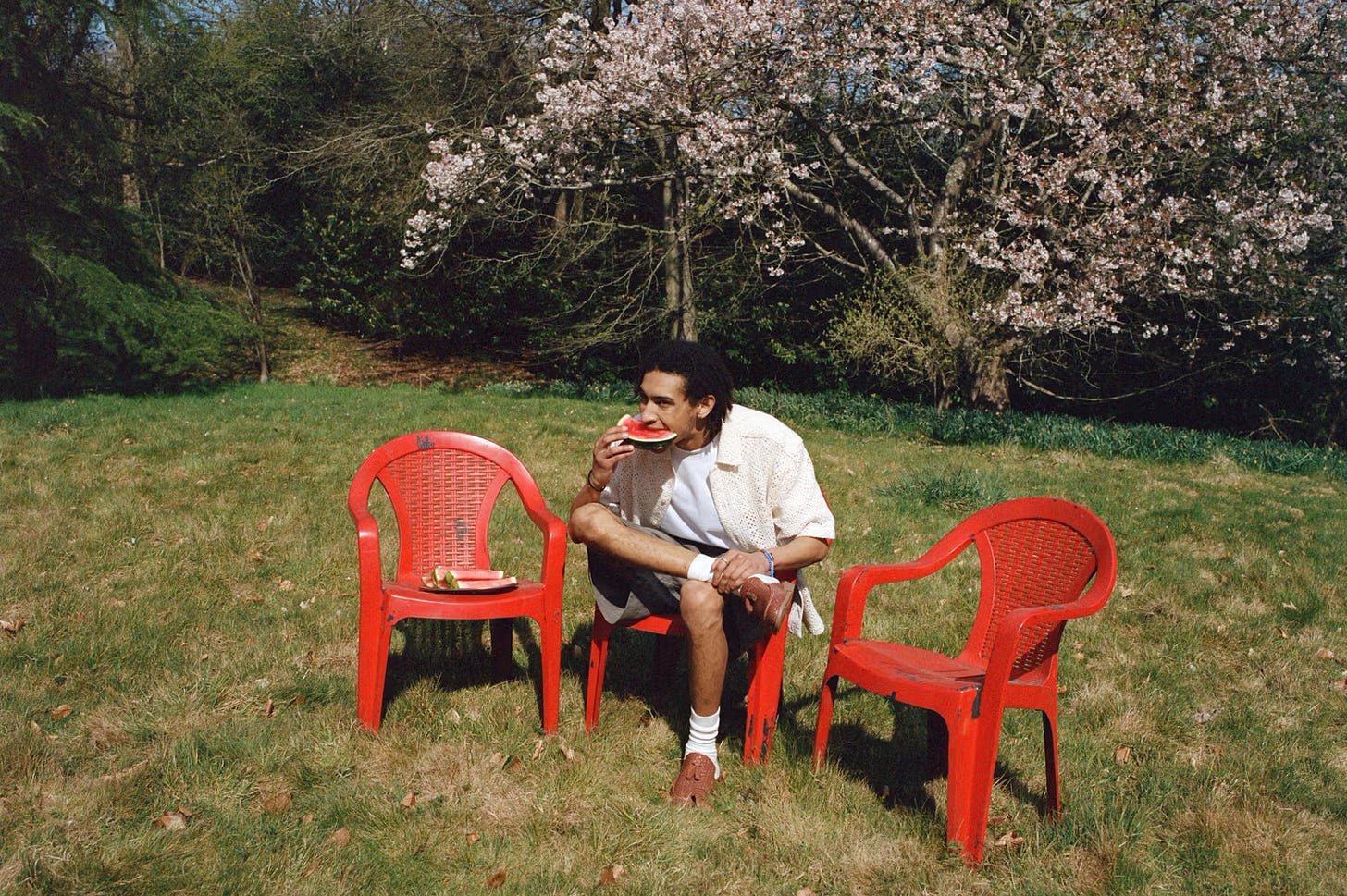
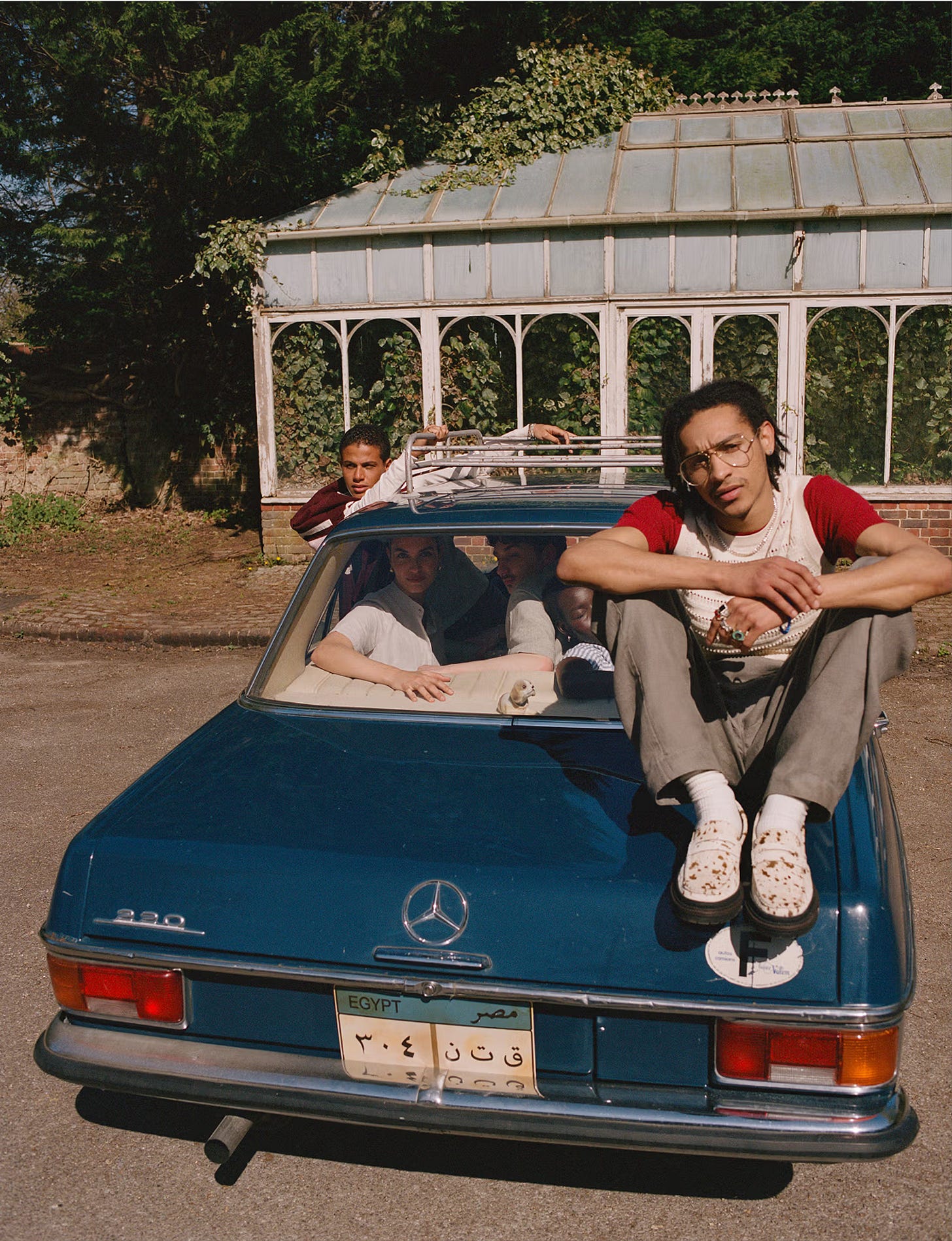

I fully enjoyed this post (which I read when I should have been working). Summer only has to be a hustle if we allow it to, and with all the new marketing techniques we have today, even doing nothing can be leveraged for profit, as you point out. We still have at least a little free will if we just put our phones down and shut out the noise.
This was great. I wonder if 'nothing' is now blanketed as 'not posting' - ie would it still be nothing if we posted a story documenting it?